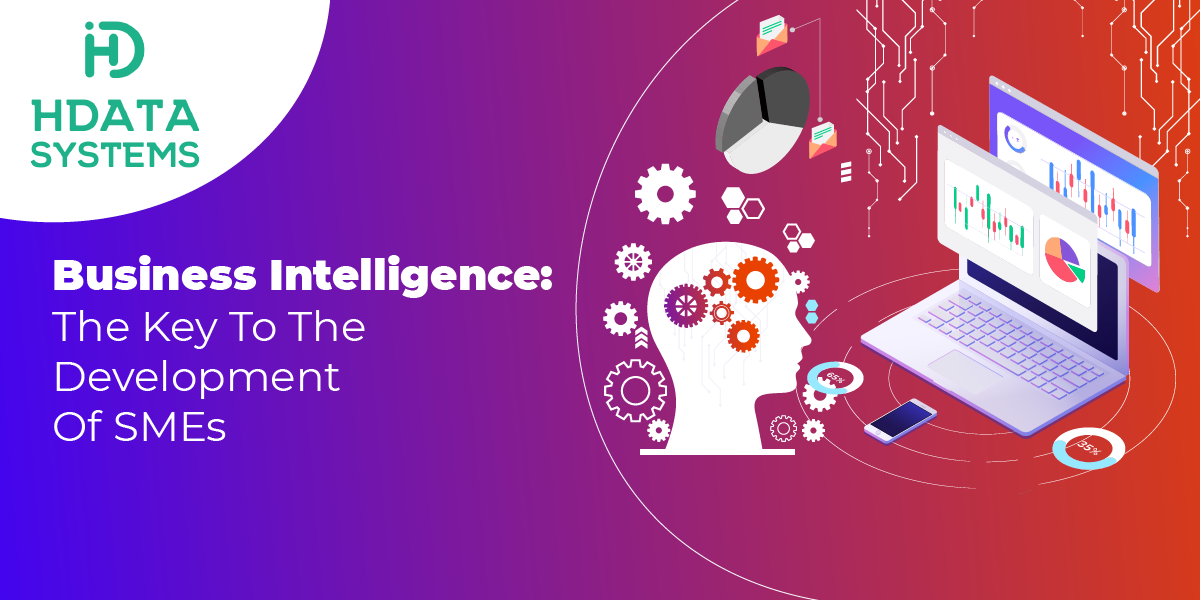Today, business intelligence or BI is available to small and medium enterprises. This is because it is a technology that, over time, has been automated to reach unsuspected levels; There are even dozens of cheap or free BI software alternatives. It has gone from requiring vast human and technological resources to develop it to be an upward trend that more and more people are familiar with it and are able to manage it. SMEs can take advantage of this intelligence for their businesses, and this article will show the benefits they can get.
What is big data analytics?
Consciously or unconsciously, collecting big data raises the question for companies whether and how this information can be used for themselves. The sole possession of this data brings no business advantages. This is where
data analytics comes into play and enables large amounts of data from different sources to be analyzed.
The aim is to read useful information and in particular patterns and correlations from the data sets. With the knowledge gained, business processes can be optimized, and competitive advantages can be achieved. The derived optimization measures contribute in most cases to a cost reduction, time-saving, as well as product and service optimization.
The evaluation of big data
In the first step of the analysis process, the amount of data must be recorded and prepared for further processing. The challenges here are the different structural conditions, formats, and sources. In addition, it is essential to check the relevance of the existing data to ensure that it is meaningful.
The large amount of data requires complex processes for acquisition, extraction, and transaction. The subsequent analysis is carried out using big data software and statistical methods. The information obtained is then processed and visualized.
Big data analytics makes it possible to work with data that was previously inaccessible or unusable. Another difference to a conventional analytics method is that the analyzes are not (only) used to learn from past events.
The primary goal is to take a look at future developments and to find out what customer behavior and customer wishes will look like in the future.
Benefits of BI software for SMEs
Just like large corporations, SMEs can also contact business intelligence consultants to help make meaning of the data. The list of benefits that business intelligence offers small and medium enterprises is very long, as is the case for large corporations. Some of them are the following:
1. Their results are easier to understand: these types of platforms have visual characteristics that enable entrepreneurs to understand things more easily. The key is that emotional intelligence allows access to results and general data in the form of visual elements rather than as plain text.
2. Train employees: this benefit is especially important for small businesses that work with a minimum of human resources since BI allows them to turn each employee into a decision-maker.
3. Provide more accurate customer profiles: since small businesses now have the option of promoting their services to a much wider audience through the use of online opportunities, business intelligence allows them to approach their "perfect shoppers" to Increase sales conversion and reduce business costs.
4. Provides quick answers to vital questions: BI software allows entrepreneurs to draw useful information from unstructured datasets. It also gives them the ability to quickly access their sales data, customers, and contact lists, in addition to using this information to answer essential business questions.
5. Makes cooperation easier: business intelligence allows all team members to use important data in real-time and access it easily.
6. Manage time better: BI software performs the vast majority of sorting and data manipulation tasks automatically, saving time, and allowing employees to invest their time in more creative and business-specific tasks.
7. Identify areas of cost reduction: the use of business intelligence helps SMEs to plan their costs better, improving the transparency of the company's finances. Small businesses usually operate with very limited funds, which requires an intelligent budget and the elaboration of austerity measures, an aspect that BI software improves significantly.
Trend in the use of business intelligence for SMEs
It is a fact that the use of business intelligence software will soon become inevitable in SMEs. For this reason, those entrepreneurs who know how to take advantage of the new trends will have a significant advantage compared to those who continue to do their business without using intelligent knowledge in this field.
Business intelligence is the beginning of the automation process that will increase the efficiency of small and medium-sized businesses, thus reaching the highest levels seen so far. We are at a time when multinational corporate entities are already obtaining billions of terabytes of data and using this information to increase their business advantage. SMEs, fortunately, is on the same path thanks to the constant development of advanced Big Data solutions and the increased availability of business intelligence software.
Harnil Oza is a CEO of HData Systems - Data Science Company & Hyperlink InfoSystem a top mobile app development company in Canada, USA, UK, and India having a team of best app developers who deliver best mobile solutions mainly on Android and iOS platform and also listed as one of the top app development companies by leading research platform.


